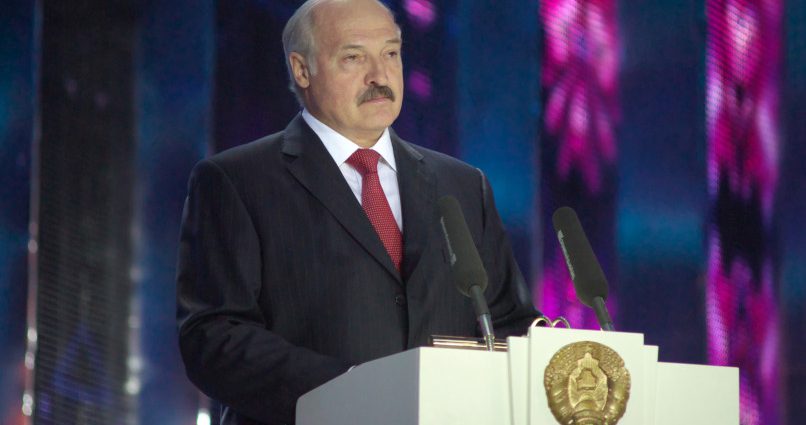UPDATE: This in-house story replaces AFP wire content included at the bottom of this article.
For more than three years, the treason trial against Cambodian opposition leader Kem Sokha has simmered in the background of a government campaign to eliminate a key political rival.
On Friday afternoon, the trial finally reached its end at the Phnom Penh Municipal Court. Judge Koy Sao handed down a prison sentence of 27 years “on the charge of collusion with foreigners committed in Cambodia and other places.”
The 69-year-old Sokha was the joint founder of the now-dissolved Cambodia National Rescue Party (CNRP) and had previously started the Cambodian Center for Human Rights, a prominent advocacy group. His work regularly placed him at odds with Prime Minister Hun Sen, who has firmly consolidated power over 38 years of rule.
The prime minister last year announced his son Hun Manet, a military commander, as his chosen successor, and is expected to stand in a general election this summer.
“This appalling verdict marks yet another low for political rights in Cambodia, which have been deteriorating since the CNRP’s dissolution in 2017,” stated Naly Pilorge, outreach director of Cambodian rights group Licadho. “Today’s decision makes it clear that civic and political space is closed ahead of the July 2023 National Election.”
Licadho and other local and international watchdogs have denounced the coming polls as a sham contest. Besides the long-running proceedings against Sokha, Pilorge pointed to the prior convictions of 158 former CNRP members and other opposition figures since November 2020. These were the product of five mass trials that also invoked charges of treason, as well as incitement and other crimes.
Arrested in 2017 in a midnight raid involving hundreds of security forces, Sokha had lived in a kind of limbo as his trial experienced long delays.
First held in a provincial prison, he was eventually transferred to house arrest and finally paroled to some semblance of normal life under restrictions. Though he was already barred from political activity, Sokha met with foreign diplomats at his home and travelled the country for personal business.


After the Friday verdict, Sokha was immediately taken from the courtroom to his home in the Toul Kork district of Phnom Penh, where he is expected to remain for now under house arrest. The court has barred him from meeting anyone apart from family members, either in-person or digitally, and has also stripped him of his right to vote or run for political office.
By Friday afternoon, special police units had established a heavy presence around his home and along its street. Masked officers with heavy rifles kept watch on the house, with two diverting traffic away from the area.
Police, including Hun Sen’s bodyguard paramilitary unit, also made a show of strength near the Council of Ministers office and along major roadways.
The trial itself had featured weeks of quarrelling between prosecution and defence over basic procedural issues.
The state’s case against Sokha claimed he had conspired with an unnamed country, heavily implied to be the U.S., to lead a “colour revolution” in Cambodia to topple Hun Sen. This centred on mass protests against the government in 2013-14 amidst allegations of electoral fraud promoted by CNRP leaders.
Prosecutors’ evidence against Sokha consisted mostly of video and audio clips from speeches he’d made during and around the time of the protests, as well as interviews in which the opposition figure discusses Cambodian politics and support from the U.S., most notably a non-governmental organisation known as the International Republican Institute.
On Friday, U.S. Ambassador Patrick Murphy stated the trial and sentence were based on a “fabricated conspiracy” and represented a “miscarriage of justice”.


Sokha has rejected the charges against him as politically motivated, with his defence attorneys pointing out that members of Hun Sen’s government had also participated in U.S.-backed political training.
“U.S. professors did not teach me to have a coup d’etat, did not teach me about colour revolution,” Sokha said at the start of his trial in 2020. “They taught me about human rights and democracy.”
The above updated text supplements the below AFP story:
A Cambodian court on Friday sentenced top opposition leader Kem Sokha to 27 years in jail for treason, in a case rights groups say is politically motivated.
“Kem Sokha… is sentenced to 27 years in prison on the charge of collusion with foreigners committed in Cambodia and other places,” Judge Koy Sao said at the court in Phnom Penh.
The 69-year-old was the joint founder of the now-dissolved Cambodia National Rescue Party and has long been a foe of Hun Sen — Asia’s longest-serving leader.
After the verdict, Kem Sokha was immediately taken from the courtroom to his home, where he will be placed under house arrest and banned from meeting anyone apart from family members.
The court also stripped him of his right to vote and barred him from running for political office.
The trial and sentence were based on a “fabricated conspiracy” and represented a “miscarriage of justice,” United States ambassador to Cambodia W. Patrick Murphy told reporters outside the courthouse in the capital Phnom Penh on Friday.
Arrested in 2017 in a midnight swoop involving hundreds of security forces, Kem Sokha was accused of hatching a “secret plan” in collusion with foreign entities to topple the government of longtime ruler Hun Sen.
He has repeatedly denied the charges against him.
Critics say Hun Sen has wound back democratic freedoms and used the courts to stifle opponents, jailing scores of opposition activists and human rights defenders.
© Agence France-Presse


